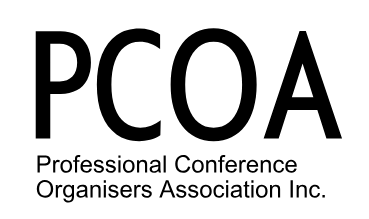The Council of Australian Governments (COAG) held its 48th general meeting recently in Sydney. The discussion focussed on Australia’s response to coronavirus (also known as COVID-19) and on recovery from the 2019-20 bushfires. Leaders also made progress on a range of existing COAG priorities, directed at improving the current and future wellbeing of Australians.
Protecting Australians from the impact of coronavirus
Australia is experiencing the impacts of coronavirus, but we are one of the best-prepared countries in the world, thanks to the early actions of all levels of government. Since January 2020, Australian governments have been working together to develop, implement and coordinate strategies to slow the spread of the virus, including through strengthening our world leading health system and implementing border measures. Today, leaders committed to leveraging their combined resources to slow the spread of the virus and ensure Australia stays ahead of the curve in minimising the impact of coronavirus on the Australian community and economy.
Healing and rebuilding from the 2019-20 bushfires
The scale of the destruction and disruption caused by the 2019-20 bushfires is unprecedented in Australian history. Leaders expressed their deepest sympathies for the lives, homes, businesses and wildlife lost as a result of the fires, as well as the impacts on Aboriginal culture. They paid tribute to those who served our country over the summer, especially our fire and emergency services, defence forces and the thousands of volunteers who supported relief and recovery efforts. Leaders also acknowledged the generous donations and offers of support from across the nation and all over the world.
With the fires now under control, leaders discussed the next phase of the recovery effort – a long-term, national approach to support communities heal and rebuild, while at the same time continuing to meet the immediate needs of those affected by the fires. Leaders agreed to implement a National Bushfire Recovery Plan spanning social, built, natural and economic recovery, and including local economic recovery plans for the most-impacted regions. This Plan builds on existing initiatives, including support to small businesses and primary producers, which is being rolled out in fire-affected areas.
Responding to the unprecedented drought
Extreme drought conditions are the most unrelenting effect of a changing climate in Australia. Despite recent rain, the Bureau of Meteorology advises that warmer than average conditions are likely until at least June 2020. Leaders acknowledged the Agriculture Ministers’ Forum Drought Working Group and noted progress to date on actions to support drought-affected farmers and regional communities. They look forward to receiving detailed advice from Agriculture Ministers later in 2020.
Reducing violence against women and their children
Australian women and children have the right to live in safety and be free from violence. The murders of Hannah Clarke and her three children shocked the country and reinforced once again the prevalence of violence against women and their children. On average, one woman a week is killed by a current or former intimate partner.
Reducing this violence is everyone’s responsibility
Reflecting their commitment to implement, and where possible, expedite their contributions under the Fourth Action Plan, leaders agreed to elevate Women’s Safety Ministers’ meetings to a new COAG Council to drive implementation of initiatives under the Fourth Action Plan of the National Plan to Reduce Violence Against Women and their Children 2010-2022 (www.plan4womenssafety.gov.au). Leaders agreed that national primary prevention campaigns and activities play an important role in changing the attitudes and behaviours that can lead to violence against women. As a priority, the COAG Women’s Safety Council will work together to understand the current status of crisis accommodation and how to improve the effectiveness of current housing support. Leaders agreed that Women’s Safety Ministers will start work on the development of the next National Plan, with national consultations to begin in Alice Springs in 2020.
Taking responsibility for our waste
Recognising that our waste is our responsibility, leaders agreed to introduce a ban on the export of waste plastic, paper, glass and tyres, fulfilling the commitment they made in August 2019. The ban will be phased in, commencing from 1 July 2020. Leaders also agreed a national response strategy to drive implementation of the ban and help reduce the amount of waste ending up in landfill. In line with the response strategy, governments will expand on work with industry to invest in growing the Australian recycling industry and build markets for recycled products.
Read the communique from the meeting here.
